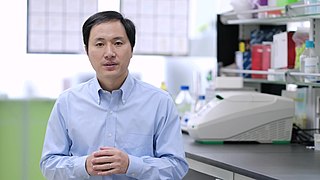The Crispr Baby Scientist Is Back. Here’s What He’s Doing Next
By Emily Mullin,
Wired
| 12. 21. 2022
In November 2018, Chinese scientist He Jiankui shocked the world when he announced, first on YouTube and then at an international scientific gathering in Hong Kong, that he had used Crispr to alter the genetic makeup of human embryos, which were used to establish pregnancies and resulted in the birth of the world’s first gene-edited babies.
Backlash against He was harsh and swift. Members of the scientific community condemned his experiments as unethical and voiced concerns over the babies’ health, about which little is known today. The Chinese government suspended his research, saying he violated medical regulations. In December 2019, a Chinese court found He guilty of illegal medical practices and sentenced him to three years' imprisonment. In light of He’s experiment, China has since adopted regulations prohibiting the modification of human embryos for reproductive purposes. He was released from prison in April.
In recent months, He has taken to Twitter and the Chinese social media platform Weibo to publicize his next steps. Previously a researcher at Southern University of Science and Technology in Shenzhen, He says...
Related Articles
By Alex Polyakov, The Conversation | 02.09.2026
Prospective parents are being marketed genetic tests that claim to predict which IVF embryo will grow into the tallest, smartest or healthiest child.
But these tests cannot deliver what they promise. The benefits are likely minimal, while the risks to...
By Steve Rose, The Guardian | 01.28.2026
Ed Zitron, EZPR.com; Experience Summit stage;
Web Summit 2024 via Wikipedia Commons licensed under CC by 2.0
If some time in an entirely possible future they come to make a movie about “how the AI bubble burst”, Ed Zitron will...
By Arthur Lazarus, MedPage Today | 01.23.2026
A growing body of contemporary research and reporting exposes how old ideas can find new life when repurposed within modern systems of medicine, technology, and public policy. Over the last decade, several trends have converged:
- The rise of polygenic scoring...
By Daphne O. Martschenko and Julia E. H. Brown, Hastings Bioethics Forum | 01.14.2026
There is growing concern that falling fertility rates will lead to economic and demographic catastrophe. The social and political movement known as pronatalism looks to combat depopulation by encouraging people to have as many children as possible. But not just...




